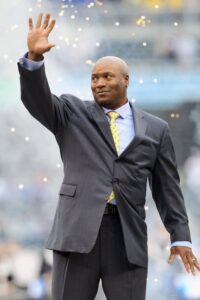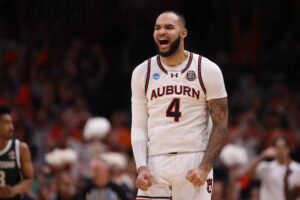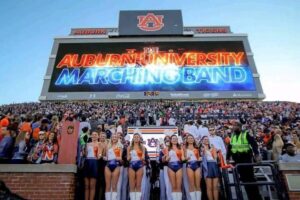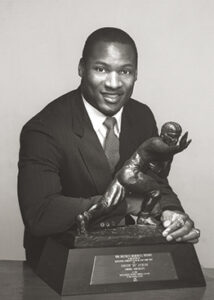
The Legacy of Lincoln Riley: Transforming Oklahoma Sooners Football into a National Powerhouse
Lincoln Riley, the former head coach of the Oklahoma Sooners football team, is widely regarded as one of the brightest minds in the sport. His time in Norman, Oklahoma, not only elevated the program into a national powerhouse but also marked a new era of explosive offensive football that has since influenced the broader landscape of college football. Under his leadership, the Oklahoma Sooners became a force to be reckoned with in the college football world, consistently competing for championships and producing NFL talent. Riley’s legacy, however, is not just about wins and losses; it’s about his transformative approach to coaching, his ability to develop quarterbacks, and his influence on the modern game of football.
Born in Lubbock, Texas, in 1983, Lincoln Riley grew up in the heart of Big 12 country. His journey into coaching began as a player, albeit in a non-conventional way. Riley was a quarterback at Muleshoe High School and later at Texas Tech University, where he played under the tutelage of Mike Leach, a coach known for his high-powered, pass-heavy offensive schemes. While Riley’s playing career was not distinguished by standout accolades, it was his experience in Leach’s system that would shape his future as a coach.
After graduation, Riley began his coaching career as a graduate assistant at Texas Tech, and his potential quickly became apparent. His understanding of offensive football and his ability to connect with players led to quick ascension through the ranks. By 2015, at just 31 years old, Riley was named offensive coordinator for the Oklahoma Sooners under head coach Bob Stoops. At the time, Oklahoma was already a respected program, but Riley’s innovative offensive mind would take the team to new heights.
Bob Stoops had already cemented his legacy as one of the greatest college football coaches of his era. Under Stoops, the Oklahoma Sooners had won a national championship in 2000 and had become a fixture in the College Football Playoff (CFP) race. However, by the time the 2010s rolled around, the program needed a new direction to keep up with the rapidly changing landscape of college football, particularly in terms of offensive strategy.
Riley’s arrival as offensive coordinator was a crucial turning point. Under his direction, the Sooners’ offense became one of the most potent and dynamic units in the country. He inherited a strong roster that included quarterback Baker Mayfield, a player who would go on to win the prestigious Heisman Trophy in 2017 under Riley’s system. Riley’s offense, known for its up-tempo pace, spread principles, and ability to exploit defenses with creative play designs, quickly turned Oklahoma into a feared offensive juggernaut.
When Bob Stoops unexpectedly retired after the 2016 season, Riley was appointed as the head coach of the Sooners. At 33, he became one of the youngest head coaches in college football history, but his preparation for this role was clear. His ability to develop quarterbacks, design explosive offenses, and recruit top-tier talent made him an ideal candidate to continue the success Stoops had built.
Under Riley, Oklahoma’s offense reached unprecedented heights. The Sooners led the nation in total offense in multiple seasons, and Riley’s approach to offense became the blueprint for success in the modern college game. His high-tempo, air raid-style offense was tailored to take advantage of his quarterbacks’ strengths, while also putting tremendous pressure on opposing defenses.
One of Riley’s most significant accomplishments was his work with quarterbacks. Over his five seasons as head coach, he coached three quarterbacks who would go on to be taken in the NFL Draft: Baker Mayfield (1st overall in 2018), Kyler Murray (1st overall in 2019), and Jalen Hurts, who was drafted in 2020. Each quarterback was different in terms of skill set, but Riley’s system was versatile enough to allow them to excel.
Baker Mayfield, the 2017 Heisman Trophy winner, flourished under Riley’s tutelage. Mayfield’s ability to make accurate throws on the run, his deep-ball accuracy, and his leadership on the field were maximized in Riley’s system. The Sooners posted an 11-2 record in 2017 and were one of the top teams in the country.
Kyler Murray, a dual-threat quarterback, followed Mayfield and had an equally brilliant career under Riley. In 2018, Murray won the Heisman Trophy and led the Sooners to the College Football Playoff. His combination of arm strength, agility, and elite athleticism was perfectly suited to Riley’s fast-paced offense, which enabled him to thrive as both a passer and a runner.
Jalen Hurts, the former Alabama star, also found success under Riley’s leadership. While Hurts was initially seen as a transfer quarterback with questions surrounding his passing ability, Riley transformed him into a more polished passer. Hurts guided Oklahoma to another College Football Playoff appearance in 2019, further solidifying Riley’s reputation as a quarterback whisperer.
Riley’s offenses weren’t just about individual talent. His schemes were designed to attack every part of the defense, from quick throws to the outside to deep shots down the field. The offense was predicated on speed, spacing, and making the defense chase. The success of Riley’s offensive units was a direct result of his ability to game-plan and adjust on the fly, something that made him a head coach with few rivals in his field.
Riley’s impact on the Sooners was immediate and profound. In his first season as head coach (2017), Oklahoma went 12-2, won the Big 12 Championship, and made the College Football Playoff. The team’s only losses came in a close matchup against Iowa State and in a high-scoring CFP semifinal against Georgia, where they came within a single touchdown of reaching the national championship game.
In 2018, Riley’s Sooners once again dominated the Big 12, winning the conference title and earning a spot in the College Football Playoff. Although Oklahoma lost to Alabama in the semifinals, the Sooners had proven that they were one of the premier programs in college football under Riley’s leadership.
The 2019 season was another banner year for Riley. Oklahoma went 12-2, winning their fifth consecutive Big 12 Championship, and had another Heisman-winning quarterback in Kyler Murray. The team made another trip to the CFP, though they were defeated by LSU in the semifinals.
Under Riley, the Sooners became a perennial contender for the College Football Playoff, and their offense was consistently ranked among the best in the country. His ability to recruit at a high level, combined with his offensive brilliance, made Oklahoma one of the most respected programs in the nation.
One of the hallmarks of Riley’s success at Oklahoma was his ability to recruit elite talent. He was able to lure top-tier recruits from across the country, particularly at the quarterback position, where he became a sought-after destination for high school stars looking to develop under a proven coach.
Riley’s success in recruiting extended beyond just quarterbacks, though. He built one of the most talented and deep rosters in college football, with playmakers at every position. His offensive line was consistently among the best in the Big 12, and his wide receivers and running backs routinely ranked among the nation’s elite. Riley’s ability to identify and develop talent was crucial to the Sooners’ sustained success.
After five seasons as head coach of the Oklahoma Sooners, Lincoln Riley made a surprising decision to leave for the University of Southern California (USC) in November 2021. His departure from Oklahoma was met with shock, as he had turned the Sooners into a national title contender year in and year out.
At USC, Riley inherited a program in need of a rebuild, but his decision was an exciting one for the college football landscape. Known for his ability to develop quarterbacks and build powerful offenses, Riley’s move to USC signaled that he would try to recreate the success he had in Norman at one of college football’s most storied programs.
Despite the abrupt end to his tenure at Oklahoma, Riley’s legacy with the Sooners remains undeniable. Under his leadership, Oklahoma cemented itself as a top-tier program in college football, consistently competing for championships and producing future NFL stars. His influence on the game, particularly in terms of offensive strategy and quarterback development, will be felt for years to come.
Lincoln Riley’s tenure at Oklahoma will forever be remembered as a transformative era for the program. From his innovative offense to his ability to develop Heisman-caliber quarterbacks, Riley took the Sooners to new heights. His legacy is one of success, innovation, and consistency, and his impact on the college football world is undeniable. Even as he moves on to a new chapter in his career, Riley’s influence on Oklahoma football will continue to be felt for years to come.
The Oklahoma Sooners, under Riley, became a national powerhouse in college football, and that legacy remains an important part of the program’s history. For fans of Oklahoma football, Riley’s years in Norman will be remembered as a golden era, one in which the team was regularly at the forefront of national college football discussions. And for Riley himself, the work he did in Oklahoma set the stage for even greater challenges and opportunities at USC.





